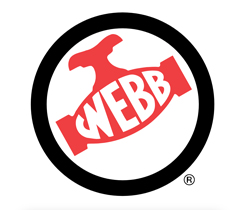FMCSA delays compliance deadline for entry-level driver training

FMCSA received significant feedback to delay the Entry-Level Driver Training program for all stakeholders. Photo: iStock.com/Urupong
The Federal Motor Carrier Safety Administration (FMCSA) announced a two-year delay to the compliance deadline for the Entry-Level Driver Training (ELDT) program.
This delay changes the compliance deadline for all participants from Feb. 7, 2020, to Feb. 7, 2022.
“In the absence of the electronic database that serves as the backbone for the Entry-Level Driver Training program, the delay is necessary,” says Sarah McLallen, vice president of communications and member services for the National Propane Gas Association (NPGA).
In July 2019, FMCSA proposed a two-year delay to parts of the ELDT program applicable to state licensing agencies. However, the agency received significant feedback to delay the entire program for all stakeholders.
FMCSA was congressionally mandated to create ELDT through Moving Ahead for Progress in the 21st Century Act (MAP-21), and the agency concluded the rule-making process in December 2016. NPGA advocated against several components of FMCSA’s initial proposal, like a minimum number of hours behind the wheel, which were ultimately removed from the final rule.
After finalization, NPGA partnered with the Propane Education & Research Council (PERC) to identify how materials could be developed to assist the propane industry in compliance with the ELDT program.
ELDT applies to new Commercial Driver’s License (CDL) applicants or new Hazardous Materials Endorsement (HME) applicants. It does not apply to currently licensed drivers or Commercial Learner’s Permits obtained before the compliance deadline, unless the CDL-holder is seeking an HME. It also applies to all other endorsements, such as Passengers.
ELDT includes a two-part curriculum that must be completed before the applicant sits for the CDL or HME exam with the state licensing office. This includes classroom or “theory” curriculum and behind-the-wheel training for range and public road.
The classroom education includes a written or electronic exam that requires the applicant pass with a score of at least 80 percent. The trainer providing behind-the-wheel training must “self-certify” or attest to satisfactory performance of vehicle operations by the applicant. The trainer also must have a CDL at or above the level sought by the applicant. A similar classroom and exam format apply to CDL-holders seeking an HME.
The classroom and behind-the-wheel training must be provided by an entity or person registered in FMCSA’s Training Provider Registry, which is a database subject to record-keeping requirements and audit.
“NPGA and PERC are developing compliance materials as well as a mechanism to easily meet the regulatory requirements,” says McLallen. “Together, our offerings will enable the propane industry to implement the requirements to bring on new drivers.”
NPGA is collaborating with PERC to create the basic classroom curriculum and behind-the-wheel training materials that a propane marketer needs in order to provide in-house training. In addition, NPGA is working on an administrative service that would allow it to serve as the official training provider subject to FMCSA record-keeping and audit.
















